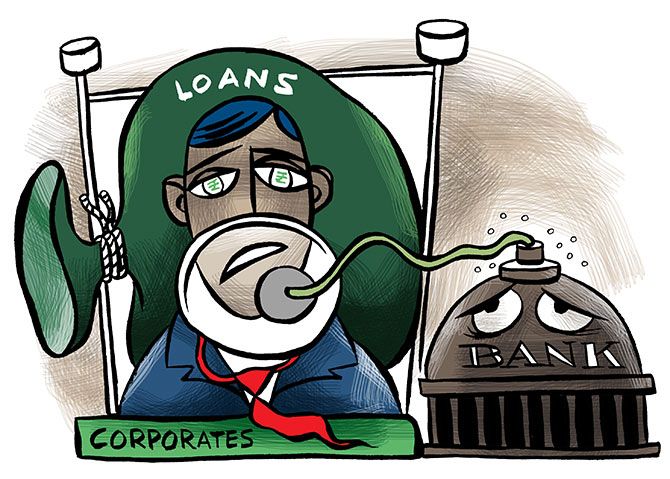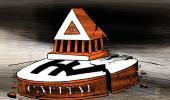Lenders say settlements will cross over 100 accounts in the March quarter.
Dev Chatterjee and Abhijit Lele report.

With rising litigation over insolvency cases, banks are increasingly opting for loan settlement offers from defaulting firms under Section 12A of the Insolvency and Bankruptcy Code.
Under this section, lenders get the option to accept such offers from erring promoters.
Lenders say settlements will cross over 100 accounts in the March quarter.
"There is anxiety among defaulters that they will lose control of their companies, and hence are coming forward with offers,"says the head of an asset reconstruction company.
According to Insolvency and Bankruptcy Board of India statistics, lenders signed 36 proposals in the December quarter, compared to just one in the June quarter.
Overall, lenders have accepted 63 proposals in FY19.
With an average haircut of 50% under the IBC process, banks are taking similar haircuts in one-time settlements and, in a few cases, even lower haircuts.
For example, banks agreed to take a haircut of 65% in the case of Sterling Biotech, while lenders to Alok Industries took a haircut of 85% by accepting an offer from Reliance Industries.
Haircut is the amount a bank forgoes while settling a defaulting account.
"There are several promoters waiting in queue with settlement offers. Lenders are looking at the proposals, and we expect many accounts to get settled in the coming quarters," says Nishit Dhruva, managing partner of the law firm MDP Partners.
In June 2018, the government made changes to the IBC via an ordinance, introducing Section 12A, which permits the National Company Law Tribunal to allow insolvency proceedings to be withdrawn -- provided 90% of the members in the committee of creditors agree.
Lenders said one of the biggest problems faced during the IBC process was litigation, followed by non-serious bidders and, in some cases, bidders without adequate cash.
"Litigation delayed resolution of the top 40 companies beyond the 180-day deadline. Besides, frequent changes to the law, when several cases were referred to the NCLT, also contributed to the delay," says a banker, requesting anonymity.
Analysts said as banks were sitting on a mountain of bad debt, it made sense to accept one-time offers and sell loans to ARCs early on.
This will get them their locked capital back, and that too earlier as compared to the IBC process.
"Due to the ARC process, banks are realising 10% to 15% more than what they would have realised otherwise, and at least 1 or 2 years earlier than any other debt resolution process. The NCLT must not allow unnecessary delays by defaulters, given these are assets that belong to the country," says Rashesh Shah, chairman of the Edelweiss group.
Another issue is of funding the buyers. In case of small units facing insolvency, chances of getting a new buyer is a challenge.
"One-time settlements in corporate accounts are happening in small ticket stressed assets," says V G Kannan, CEO, Indian Banks Association. "The chances of new promoters coming in are remote."
The only other choice is restructuring, but it may not meet eligibility conditions for minimum investment grade rating.
It should have at least a moderate degree of safety regarding timely servicing of financial obligations. Therefore, banks prefer settlement with many promoters, taking a substantial haircut.
Allowing the same to go for liquidation drags cases, and reduces the value of assets.
A delay will only increase the provisioning burden for many public sector banks, which are already under severe burden of keeping aside money from profits for bad loans.
Banks would like to reduce the obligation on future earnings to provide for bad loans, say two senior public sector bank executives.












 © 2025
© 2025